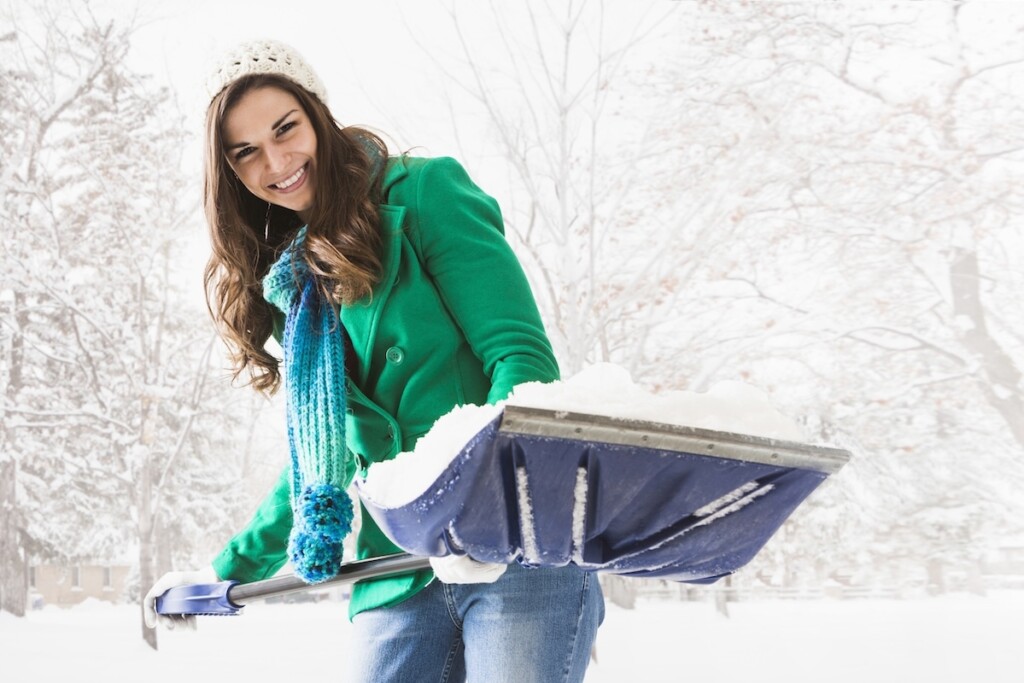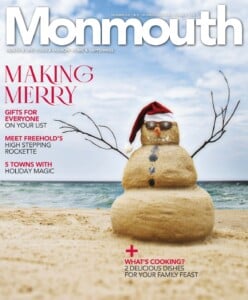This Season Of The Heart
Winter brings cardiac risks that call for special prudence, two Monmouth doctors explain.

The phrase “winter blues” usually refers to matters of the metaphorical heart, but make no mistake: The coldest season can spell trouble for your literal ticker as well. Freezing winter weather and its consequences, including both a sedentary, indoor life and the sudden exertion required to shovel heavy snow, can increase your risk of a cardiac episode.
“Some of it has to do with lack of exercise,” explains Isaac Tawfik, M.D., a cardiologist at Monmouth Heart and Vascular in Eatontown. “Some of it has to do with not being as disciplined around the holidays, and binge-eating and consuming alcohol more than usual. Some of it has to do with weather factors themselves.”
Jatinchandra Patel, D.O., interventional cardiologist and medical director of CentraState Medical Center’s Robertshaw Cardiovascular Interventional Center in Freehold, expands on that point. “Cold temperatures put you at increased risk for hypothermia and dehydration. These can both elevate your heart rate and elevate blood pressure. That’s the issue with doing strenuous activity in cold weather and snow. It will elevate your heart rate above what your heart is used to; your heart rate gets very fast, very quickly. This causes constricting of the blood vessels and increased workload of the heart, which can lead to cardiovascular events.” This can become a particular problem after a heavy snowstorm, when the instinct of many is to head outside right away and ambitiously shovel driveways and sidewalks. More than a chilly inconvenience, this chore can put certain people’s lives in danger, particularly if they’re older or have other heart-attack risk factors. The strain of heavy labor, combined with that above described vasoconstriction and the added weight of protective clothes, can trigger the formation of a blood clot that blocks the artery and causes a heart attack. Dr. Patel says snow shoveling is “a big ‘no’—especially in Monmouth, where a lot of driveways are very big. It’s simply too much. Most people don’t need to go out there and do it themselves.”
Dr. Tawfik echoes the sentiment: “Generally, in my practice—especially for my patients who have established heart disease—I advise against it.”
Dr. Patel also notes that snowy conditions can delay lifesaving medical care. “Emergency Medical Services (EMS) vehicles are often traveling more slowly, and so are the people on the team who need to come in and attend to the patient. All of these things lead to delays in the patient’s getting the attention. You’re taking a bad situation and making it worse. I always tell people to, please, do me a favor and stay inside.”
But you can take steps to reduce the danger, the doctors say:
• Stay (safely) active. “It has to start in October,” says Dr. Patel. “As the weather gets colder, people tend to decrease activity such as outside walks. But there’s no reason why you can’t continue them through November. The more you keep up your fitness level, the less your chances of having an event from a massive snowstorm.”
For folks who want to keep up their exercise in winter and do it safely, Dr. Tawfik says: “We recommend staying indoors, but for outdoor exercise it’s best to start with a warmup period indoors. Don’t start vigorous exercise in the outdoor setting.”
To keep up physical activity such as daily walks when the weather gets frigid, both Dr. Patel and Dr. Tawfik suggest walking at a mall or another indoor location, or braving a gym membership until the springtime.
• Remember other risks. Any health burden is a heart burden, especially infection. In the winter, it’s particularly important to stay up-to-date on vaccines. Ask your doctor about inoculations for COVID-19, the flu and RSV (respiratory syncytial virus) and wash your hands regularly with soap for at least 20 seconds. Dry, cracked skin can create open portals for germs to enter the body, so hand lotion is a must as well. Dr. Tawfik adds: “Getting adequate sleep is important. It’s healthy for both your heart and your body in general. And abstain from tobacco products; there is a strong link between tobacco and heart disease.”
Adds Dr. Patel: “Stay hydrated, eat healthy and be vigilant. Don’t ignore any new symptoms that are developing.”
• Know signs of trouble. The first steps to surviving a heart attack are identifying that you are experiencing one, and getting help as fast as possible. Familiarize yourself with the symptoms of a heart attack, both common and uncommon. Dr. Tawfik explains: “The typical sign is pressure in the chest, sometimes with radiation to the neck, the back or the arm. It may or may not be associated with difficulty breathing or breaking out in a sweat.”
More atypical symptoms, says Dr. Patel, “we tend to see more in diabetics, elderly people and sometimes women. You may have dyspepsia [abdominal discomfort or an upset stomach]. You may have neck pain, or jaw pain. I’ve seen some of the elderly folks come in with what they think is tooth pain, and then the emergency-room physician tells them that they’re having an acute heart attack.”
If you are experiencing these kinds of symptoms and think you are having a heart attack, immediately dial 911. Says Dr. Patel: “Those operators are trained to guide you through the next steps.”

